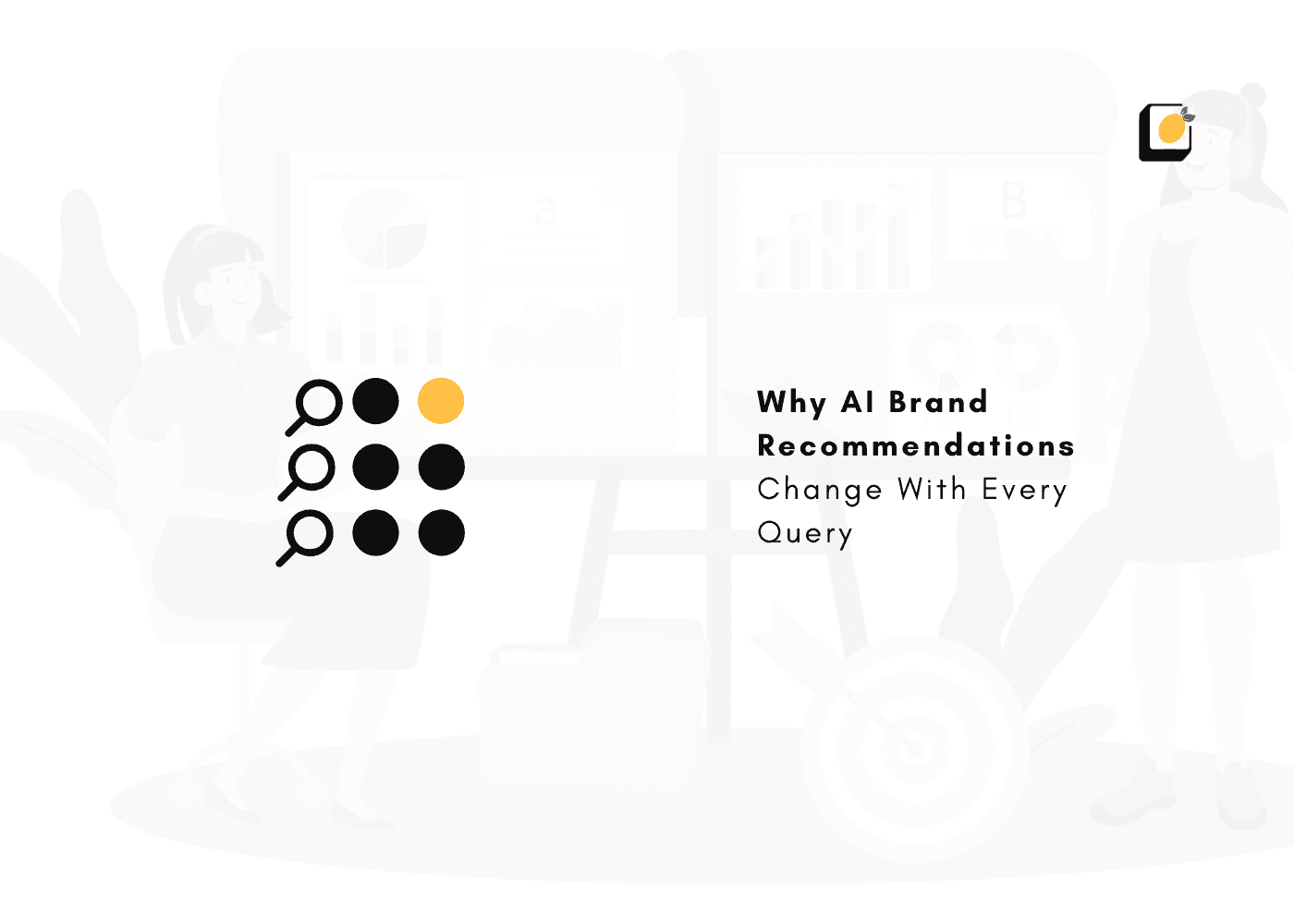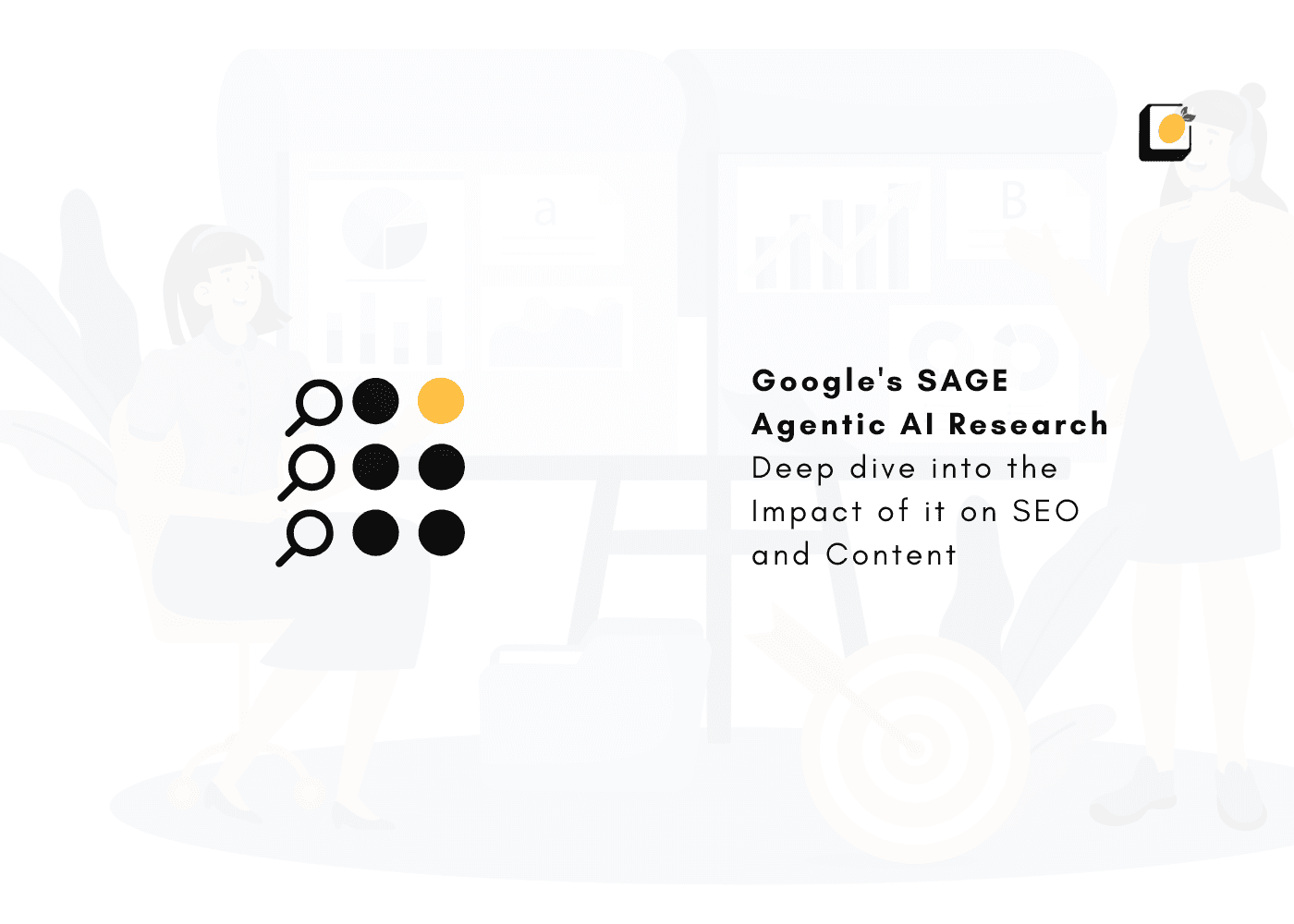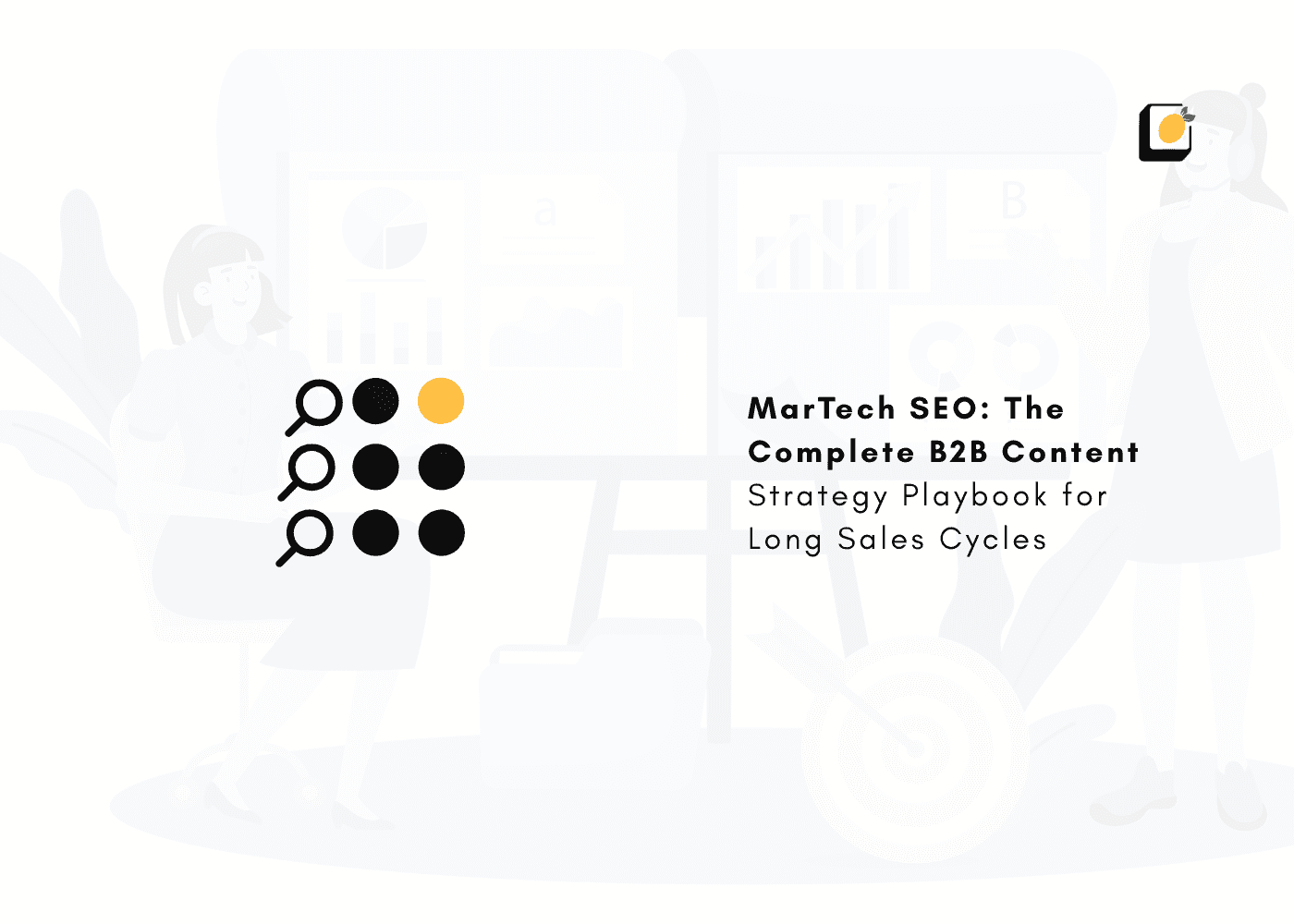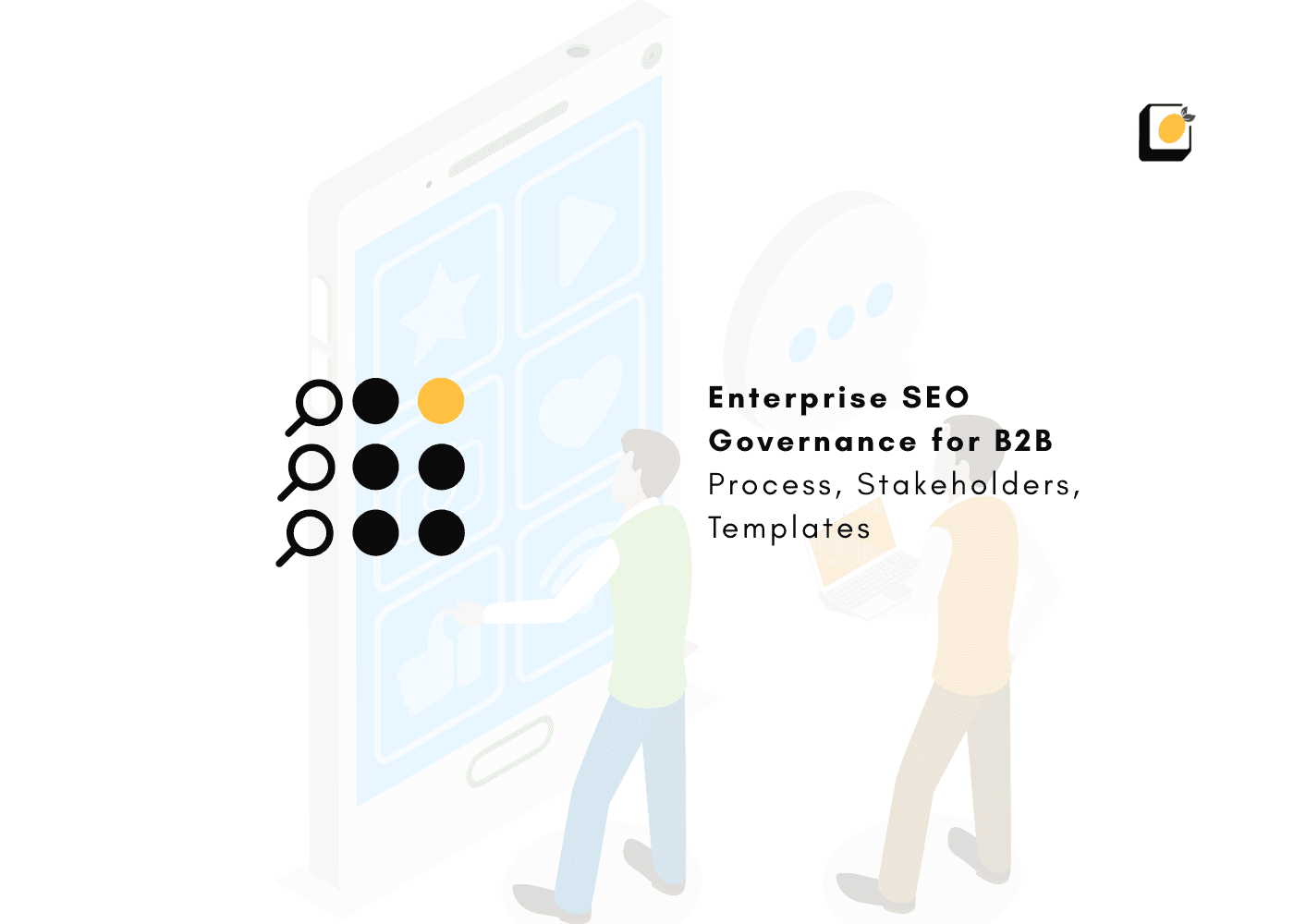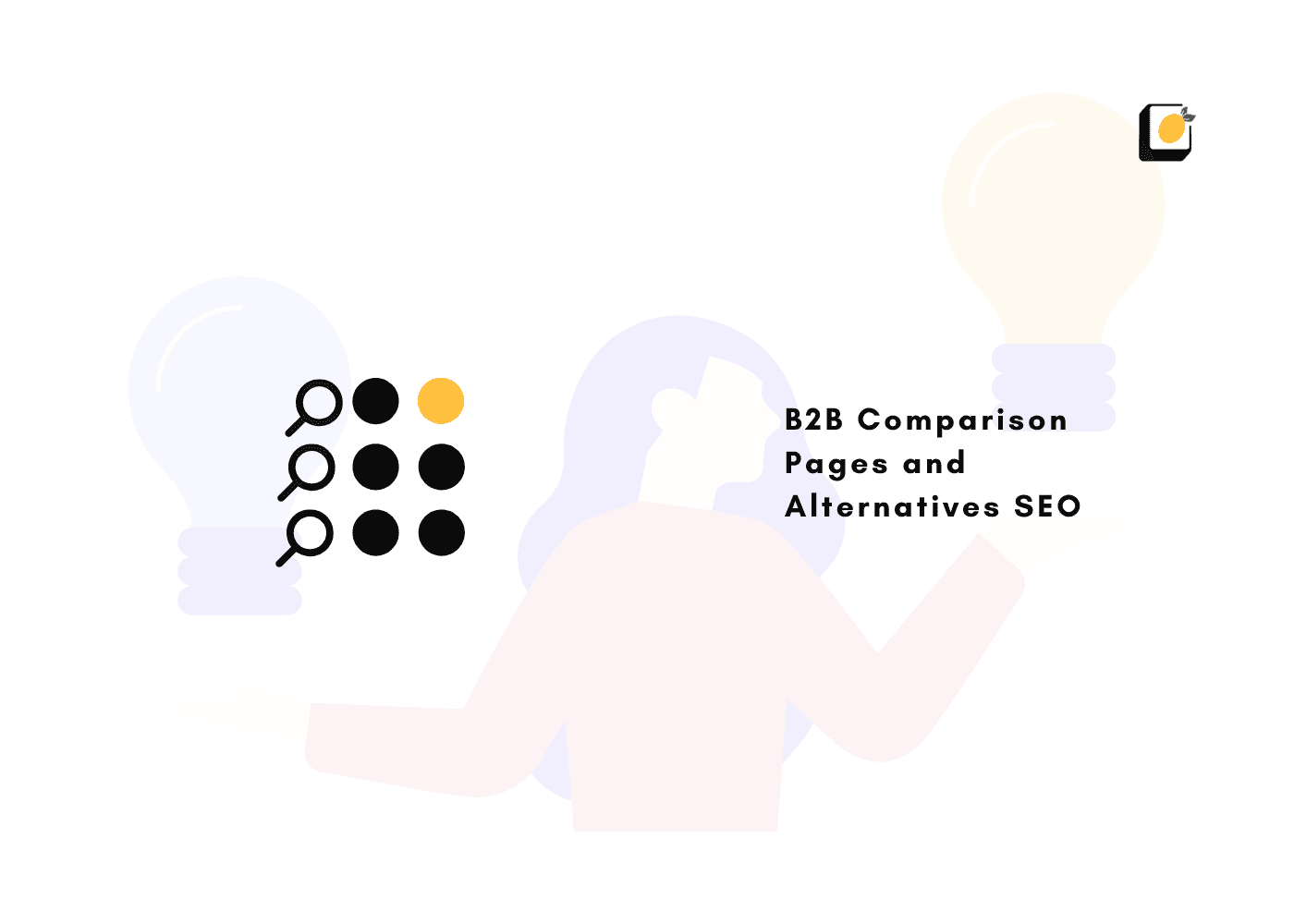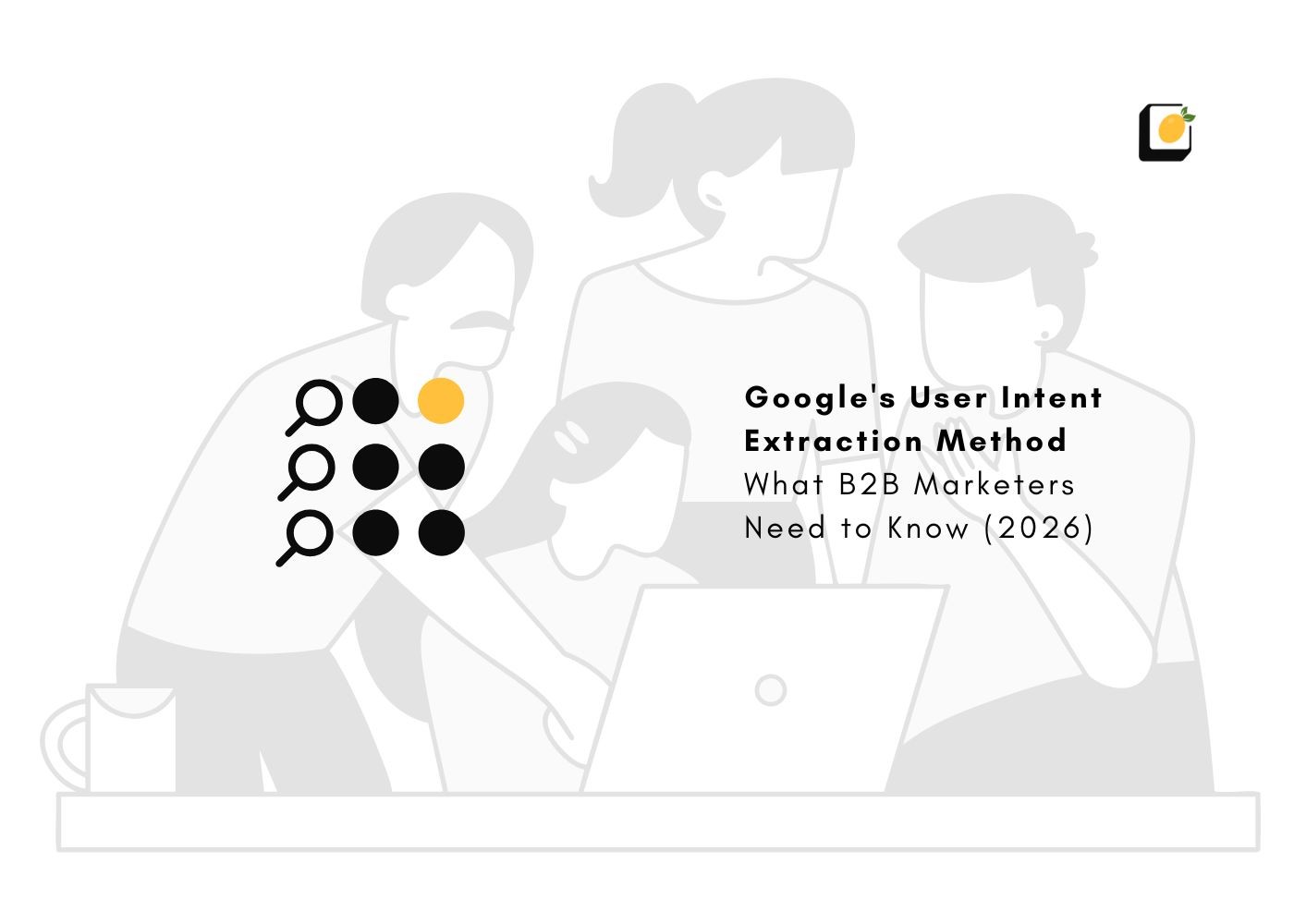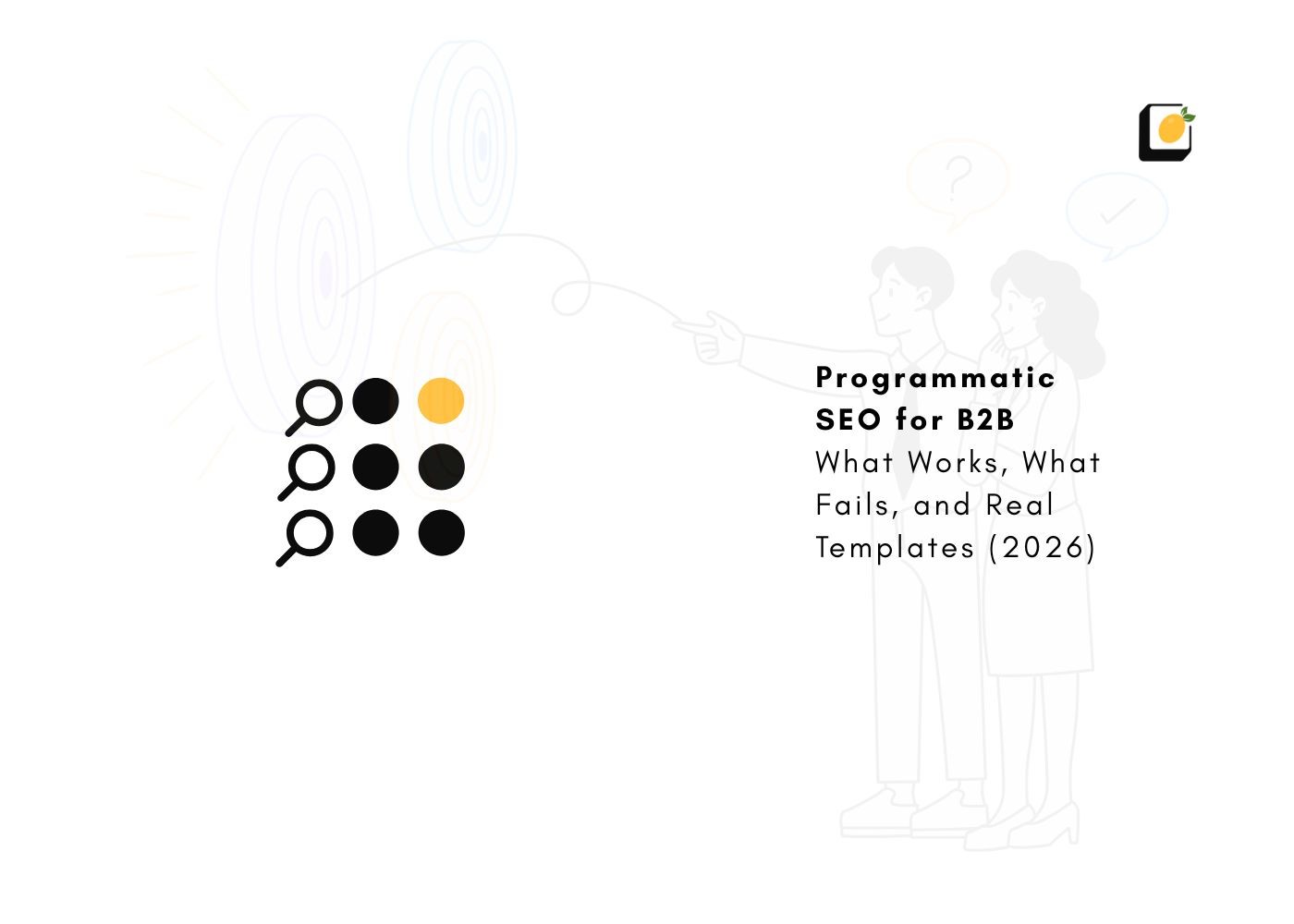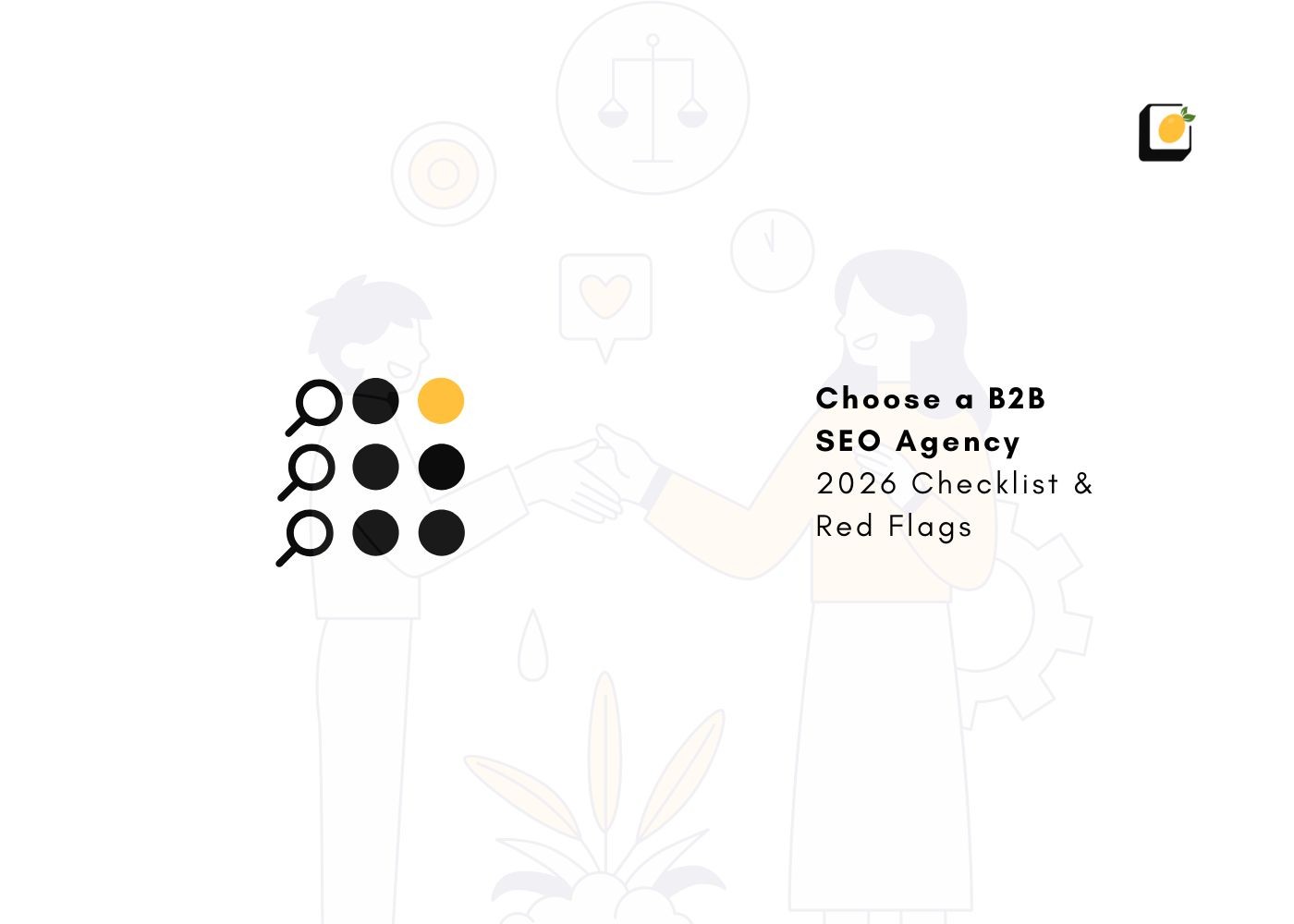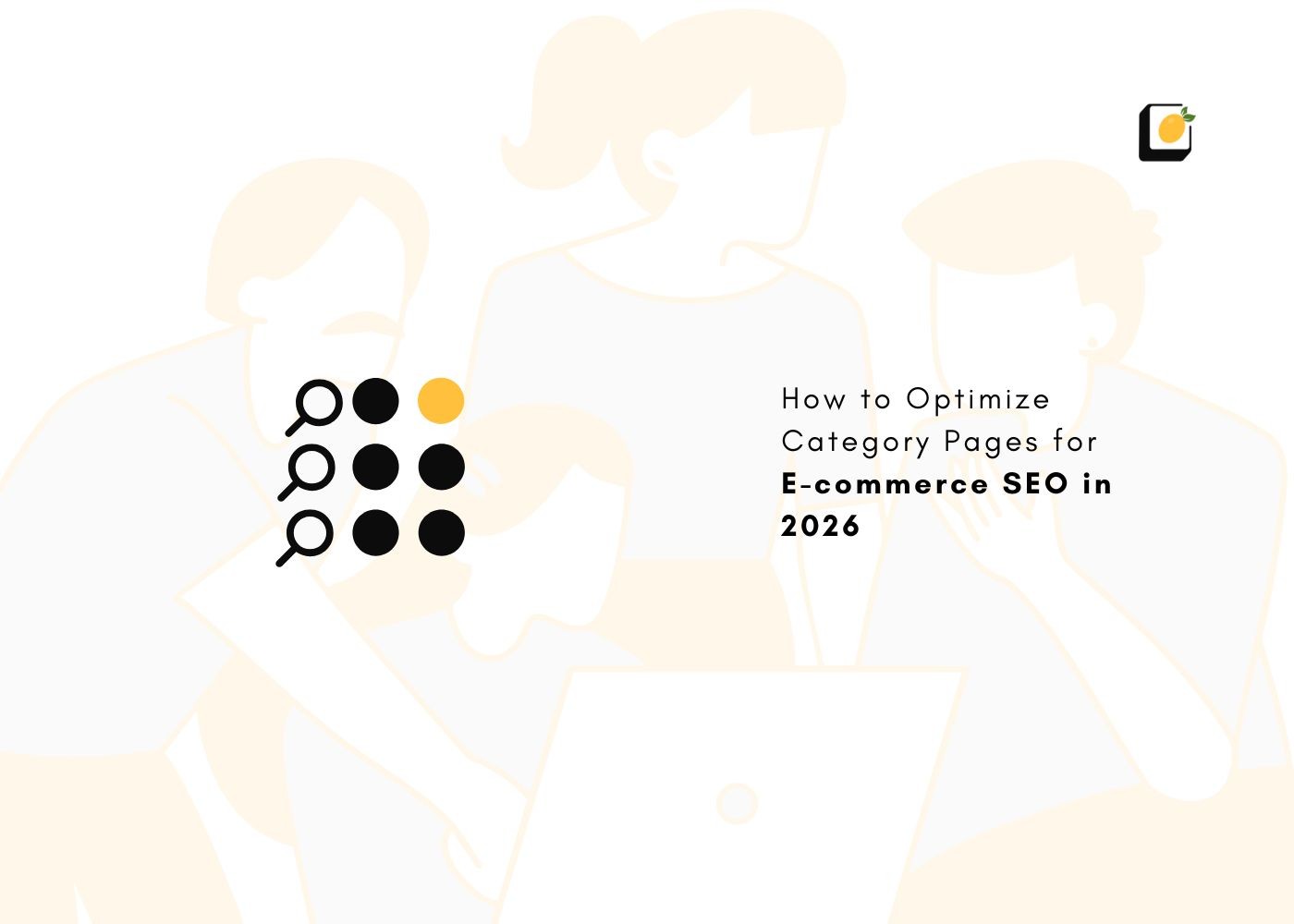SEO 101: Complete Search Engine Optimization Guide for Startups
August 19, 2025
Join 500+ brands growing with Passionfruit!
Key Takeaways: SEO 101 for Startup Founders
1. Timing Matters: Don't Rush SEO Before Product-Market Fit
YC's advice is right– focus on product/fit first. Use SEO basics like keyword research to understand your market, but don't invest heavily in SEO services until you have validated demand. Search engine optimization can wait, but search engine understanding cannot.
2. SEO Strategy Evolves with Your Startup Stage
Pre-PMF: Basic technical setup + market research through SEO keywords
Approaching PMF: Create comparison content and optimize product pages
Post-PMF: Scale with comprehensive SEO marketing and professional help
3. SEO Keyword Research Is Market Research in Disguise
Your SEO keyword research reveals what customers actually want. Use free SEO tools to find pain points and validate ideas before building features. This data is more valuable than opinions.
4. On Page SEO and Technical SEO Are Non-Negotiable
Even with limited resources, ensure your website SEO includes:
Fast loading speed (under 3 seconds)
Mobile responsiveness
Clear URL structure
Basic meta tags and descriptions
5. SEO Content Must Serve Users First
Good SEO writing answers questions completely. Whether it's SEO for beginners content or advanced guides, focus on being helpful. Search engines reward content that satisfies user intent.
6. Link Building Requires Relationships, Not Tricks
Off page SEO success comes from genuine connections. Create content worth linking to, build industry relationships, and avoid buying links. Quality beats quantity every time.
7. Local SEO Can Drive Early Traction
Even online startups benefit from local SEO. Claim your Google Business Profile, gather reviews, and target location-based keywords if you serve specific markets.
8. SEO Best Practices Change, But Fundamentals Don't
While search engine algorithms evolve, SEO fundamentals remain constant:
Create valuable content
Ensure good user experience
Build genuine authority
Track and improve results
9. AI Is Reshaping Search Engine Marketing
Traditional SEO optimization now includes preparing for AI search engines. Focus on comprehensive, authoritative content that AI systems can reference and cite.
10. You Can Start SEO Yourself, Then Scale with Help
Learn SEO basics yourself before hiring SEO services. This knowledge helps you:
Make better hiring decisions
Avoid scams and bad practices
Understand realistic timelines
Measure actual ROI
Starting a new business? You're probably hearing conflicting advice about SEO. Some experts say you need to start immediately. Others, including Y Combinator, advise: "Don't prioritize SEO pre-PMF – focus on product/fit first."
So what's the right answer for your startup?
Our comprehensive guide breaks down everything you need to know about search engine optimization. We'll cover when to start, what to focus on, and how to build an SEO foundation that grows with your business. Whether you're B2B or B2C, SaaS or e-commerce, this guide gives you the practical knowledge to make smart SEO decisions.
What Is Search Engine Optimization and Why Does It Matter?
Search engine optimization (SEO) is the practice of improving your website to rank higher in search results. When someone searches for products or services like yours, SEO helps your website appear at the top of those results.
How Search Engine Results Work
Search engines operate through three core functions:
Crawling: Search engine bots scan websites across the internet
Indexing: They organize and store information about each page
Ranking: When someone searches, they display the most relevant results
For startups, this means your website needs to be technically sound, content-rich, and trustworthy. Google processes billions of searches daily, and appearing in those results can transform your business.
Why SEO for Startups Is Different
SEO for startups presents unique challenges. You're competing against established brands with years of authority. Your resources are limited. You might not even know your exact target market yet.
But SEO also offers startups unique advantages:
Long-term asset: Good SEO compounds over time
Cost-effective: Organic traffic doesn't require ongoing ad spend
Market validation: Search data reveals what customers actually want
Trust building: High rankings signal credibility to potential customers
Understanding what is SEO and how it works helps you make informed decisions about when and how to invest.
SEO Basics and Fundamentals Every Founder Must Know
Before diving into complex strategies, master these SEO basics. These fundamentals apply whether you're selling to consumers or businesses.
Core SEO Keywords and Concepts
Understanding SEO keywords is crucial. Keywords are the terms people type into search engines. They fall into several categories:
Head terms: Broad, high-volume searches ("project management")
Long-tail keywords: Specific phrases ("project management software for remote teams")
Branded keywords: Searches including your company name
Commercial intent: Keywords showing buying intent ("buy," "pricing," "reviews")
For startups, long-tail keywords often provide the best opportunity. They're less competitive and attract more qualified traffic.
SEO Fundamentals That Drive Results
The core SEO fundamentals include:
Relevance: Your content must match search intent. If someone searches "how to manage remote teams," they want advice, not a sales pitch.
Authority: Search engines favor websites that others trust and reference. This comes from quality backlinks, brand mentions, and user engagement.
User Experience: Fast loading times, mobile responsiveness, and easy navigation all impact rankings. Google wants to send users to sites that provide good experiences.
Fresh Content: Regular updates signal an active, maintained website. This doesn't mean changing everything constantly, but adding new content and updating existing pages helps.
Learn more about SEO principles and fundamentals to build a strong foundation.
How to Build an Effective SEO Strategy for Your Startup
Your SEO strategy should align with business goals and resources. Here's how to create one that works.
Setting SEO Ranking Goals That Matter
Good SEO ranking goals are specific and tied to business outcomes:
Traffic goals: Target specific visitor numbers for key pages
Keyword rankings: Focus on terms that drive qualified traffic
Conversion metrics: Track how SEO visitors become customers
Brand visibility: Monitor searches for your company name
Avoid vanity metrics like total traffic if those visitors don't convert. Quality beats quantity in startup SEO.
Creating Your SEO Guide and Roadmap
Your SEO guide should outline:
Current state audit: Where you stand today
Competitor analysis: What's working in your market
Keyword opportunities: Terms you can realistically rank for
Content calendar: What you'll publish and when
Technical priorities: Issues to fix first
Measurement plan: How you'll track progress
Start small and scale based on results. Mastering SEO in 2025 requires patience and consistency.
SEO Keyword Research: Finding What Your Customers Search For
SEO keyword research reveals what your potential customers actually search for online. This data is gold for startups.
How to Find the Right SEO Keywords
Start your keyword research with these methods:
Customer interviews: Ask customers how they'd search for your solution. Their language often differs from your internal jargon.
Competitor analysis: See what keywords successful competitors target. Tools show which terms drive their traffic.
Search suggestions: Google's autocomplete and "People also ask" sections reveal real searches.
Industry forums: Reddit, Quora, and specialized forums show the questions people ask.
For detailed guidance, check out the ultimate guide to keyword research.
Best SEO Tools for Keyword Research
SEO tools range from free to expensive. Here's what startups should consider:
Free tools:
Google Keyword Planner (requires Google Ads account)
Google Search Console (shows current performance)
Answer The Public (finds questions)
Google Trends (reveals seasonal patterns)
Paid tools:
Ahrefs (comprehensive but expensive)
SEMrush (good for competitor research)
Moz (beginner-friendly interface)
Start with free keyword research tools before investing in paid options. For a complete comparison, see SEMrush vs Ahrefs vs Moz.
On Page SEO: Website SEO Optimization That Converts
On page SEO involves optimizing individual pages on your website. This is where you have the most control.
Website SEO Optimization Best Practices
Every page needs these on-page elements optimized:
Title Tags: The clickable headline in search results. Include your main keyword and make it compelling. Learn how to optimize title tags for better click-through rates.
Meta Descriptions: The snippet below your title. While not a ranking factor, good descriptions improve clicks.
Headers (H1, H2, H3): Organize content with clear headings. Include keywords naturally.
URL Structure: Keep URLs short and descriptive. Creating SEO-friendly URLs improves both user experience and rankings.
Internal Linking: Connect related pages on your site. This helps users and search engines navigate.
Creating SEO Content That Ranks
SEO content goes beyond keyword stuffing. Quality content that ranks well:
Answers the searcher's question completely
Provides unique insights or data
Uses clear, scannable formatting
Includes relevant images and examples
Links to authoritative sources
For startups, focus on content that serves your ideal customers. Educational content builds trust while product pages drive conversions.
SEO Writing Best Practices
Good SEO writing balances search engines and human readers:
Write naturally: Keywords should flow within sentences
Front-load value: Put important information early
Use short paragraphs: Easier to read on mobile
Include examples: Concrete details improve understanding
Answer related questions: Comprehensive content ranks better
Understanding E-E-A-T in SEO is crucial for building trustworthy content.
Off Page SEO and Link Building Strategies
Off page SEO happens outside your website. It's primarily about earning links and mentions from other sites.
Why Link Building Matters for Authority
Link building remains crucial because links act like votes of confidence. When reputable sites link to yours, search engines see this as endorsement.
For startups, quality matters more than quantity:
One link from TechCrunch beats 100 from random blogs
Relevant links (your industry) carry more weight
Natural link profiles grow gradually
Avoid buying links or using link farms. These tactics can get your site penalized.
SEO Best Practices for Building Links
Effective link building strategies for startups:
Create link-worthy content: Original research, comprehensive guides, or useful tools naturally attract links.
Build relationships: Network with others in your industry. Genuine relationships lead to natural links.
Guest posting: Write for reputable sites in your niche. Focus on providing value, not just getting links.
Digital PR: Share newsworthy updates about your company. Product launches, funding rounds, or unique insights can earn media coverage.
Fix broken links: Find broken links on relevant sites and suggest your content as replacement.
Sometimes you'll need to disavow harmful links if spammy sites link to you.
Technical SEO: Essential Foundation for Growth
Technical SEO ensures search engines can properly crawl, understand, and index your site. Without this foundation, your content efforts won't succeed.
Core Technical SEO Requirements
Every startup website needs:
Site Speed: Slow sites frustrate users and hurt rankings. Minify code and optimize images.
Mobile Responsiveness: Most searches happen on mobile devices. Your site must work perfectly on all screen sizes.
SSL Certificate: The "https" in your URL. Essential for security and trust.
XML Sitemap: Helps search engines find all your pages. Submit through Google Search Console.
Robots.txt: Tells search engines which pages to crawl or ignore.
Schema Markup: Structured data that helps search engines understand your content better.
Website SEO Performance Optimization
Website SEO performance directly impacts user experience and rankings:
Page speed: Aim for under 3 seconds load time
Core Web Vitals: Google's metrics for user experience
Mobile usability: Test on actual devices, not just browser tools
Crawl efficiency: Fix errors that prevent proper indexing
Understanding how Google indexing works helps you diagnose technical issues.
SEO Analytics for Measuring Success
SEO analytics tell you what's working:
Google Analytics: Track visitor behavior, conversions, and traffic sources. Learn what organic search means in Google Analytics.
Google Search Console: See actual search queries, rankings, and technical issues.
Rank tracking: Monitor position changes for target keywords.
Conversion tracking: Connect SEO efforts to business results.
Focus on organic traffic vs organic conversions to measure real impact.
Local SEO: Capturing Nearby Customers
Local SEO helps businesses attract nearby customers. Even online-only startups can benefit from local visibility.
Local SEO vs Regular SEO
Local SEO differs from general SEO in key ways:
Includes location-based keywords ("web design agency in Austin")
Requires Google Business Profile optimization
Emphasizes reviews and local citations
Targets "near me" searches
Understanding SEO vs local SEO differences helps you choose the right approach.
Search Engine Marketing for Local Businesses
Search engine marketing for local visibility includes:
Google Business Profile: Claim and optimize your listing with accurate information, photos, and regular updates.
Local citations: Ensure consistent name, address, and phone number across all directories.
Local content: Create pages targeting specific locations you serve.
Reviews management: Encourage and respond to customer reviews.
Learn how to leverage near me searches for local growth.
SEO Tips and SEO Services: When to DIY vs Hire Help
Startups face a crucial decision: handle SEO internally or hire SEO services?
How to Improve SEO Results Yourself
You can improve SEO without agencies by:
Learning basics: Understand fundamental concepts
Using free tools: Start with Google's free offerings
Creating quality content: Focus on helping your audience
Fixing technical issues: Address basic problems first
Building relationships: Network for natural link opportunities
Many founders successfully do SEO themselves in the early stages.
When to Consider SEO Help and Professional SEO Services
Consider professional SEO services when:
You've achieved product-market fit
SEO directly drives revenue
Technical issues exceed your expertise
You need to scale content production
Competition requires advanced strategies
Quality SEO services are expensive because they require expertise, tools, and time. Understanding why SEO is expensive helps set realistic expectations.
For comprehensive guidance, review top AI SEO companies and how they're adapting to new search technologies.
SEO for Beginners: Common Mistakes and How to Avoid Them
SEO for beginners often involves learning through mistakes. Here are the most common pitfalls:
Keyword stuffing: Overusing keywords makes content unreadable and can trigger penalties.
Ignoring search intent: Ranking for keywords that don't match what users want wastes effort.
Neglecting mobile: With mobile-first indexing, poor mobile experience kills rankings.
Buying cheap links: Low-quality backlinks do more harm than good.
Expecting instant results: SEO takes months to show significant impact.
Copying competitors blindly: What works for them might not work for you.
Ignoring technical SEO: Great content can't overcome technical problems.
Common SEO mistakes SaaS companies make apply to most startups.
SEO Optimization and SEO Marketing: Building Long-Term Success
SEO optimization is a marathon, not a sprint. Successful SEO marketing requires:
Patience: Results take 3-6 months minimum to materialize.
Consistency: Regular content creation and optimization compound over time.
Adaptation: Search engines evolve, and strategies must adjust.
Integration: SEO works best combined with other marketing channels.
Measurement: Track progress and adjust based on data.
The rise of AI search means traditional SEO is evolving. Understanding what is AI search and generative engine optimization prepares you for the future.
The Future of Search and Your Startup
Search is changing rapidly. AI-powered tools like ChatGPT and Perplexity are reshaping how people find information. Google's AI Overviews change what appears in search results.
For startups, this means:
Focus on comprehensive, authoritative content
Build genuine expertise in your niche
Prioritize user experience over search tricks
Prepare for voice and conversational search
Understand how AI overviews affect click rates
The fundamentals remain constant: create value for your audience, build trust, and make your site easy to use and find.
Taking Action: Your SEO Roadmap
Now that you understand SEO basics, here's your action plan:
Pre-Product Market Fit:
Set up Google Analytics and Search Console
Ensure basic technical SEO (mobile-friendly, fast, secure)
Create a few foundational pages about your solution
Use keyword research to understand your market
Approaching Product Market Fit:
Create comparison and educational content
Optimize product pages for conversions
Build relationships in your industry
Start tracking keyword rankings
Post-Product Market Fit:
Scale content production systematically
Invest in link building and PR
Consider professional SEO help
Expand into new keyword territories
Remember: SEO is one channel among many. Balance it with other growth strategies based on what works for your specific business.
Ready to implement a scalable SEO strategy? Get started with Passionfruit to streamline your content creation and optimization process.
Frequently Asked Questions
Q: Should every startup invest in SEO from day one? A: No. Focus on product-market fit first. Do basic technical setup and keyword research, but save major SEO investments until you've validated your business model and understand your target audience.
Q: How long before I see results from SEO efforts? A: Typically 3-6 months for initial results, 6-12 months for significant impact. Competitive industries take longer. New sites take time to build authority and trust with search engines.
Q: Can I compete with big brands that dominate search results? A: Yes, by targeting specific niches and long-tail keywords. Focus on areas where you can provide unique value. Build topical authority in narrow segments before expanding.
Q: Is AI-generated content good for SEO? A: AI can help with research and drafts, but content needs human expertise, fact-checking, and editing. Google values helpful, accurate content regardless of how it's created. Quality and accuracy matter most.
Q: What's the minimum budget needed for effective SEO? A: You can start with $0 using free tools and creating content yourself. As you grow, budget $500-2000/month for tools and content. Professional agencies typically charge $2500-10,000+/month depending on scope.
SEO 101 Checklist for Startup Founders
Phase 1: Foundation (Pre-Product Market Fit)
Technical Setup (Week 1)
Install Google Analytics on your website
Set up Google Search Console
Ensure website has SSL certificate (https://)
Test mobile responsiveness on actual devices
Check page loading speed (aim for <3 seconds)
Create XML sitemap
Set up robots.txt file
Basic SEO Research (Week 2-3)
List 20-30 keywords your customers might search
Use free keyword research tools to validate search volume
Analyze top 3 competitors' websites
Document questions customers ask about your solution
Create spreadsheet tracking target keywords
Initial Content (Week 4)
Write compelling homepage title and meta description
Create 3-5 problem-focused pages
Ensure all pages have unique titles
Add alt text to all images
Create basic About and Contact pages
Phase 2: Growth (Approaching Product Market Fit)
Content Development (Month 2-3)
Create comparison pages vs. main competitors
Write 5-10 educational articles solving customer problems
Optimize all product/service pages
Build FAQ page from real customer questions
Start internal linking between related pages
SEO Analytics Setup
Define conversion goals in Google Analytics
Set up event tracking for key actions
Create monthly reporting template
Track rankings for top 10 target keywords
Monitor organic traffic vs conversions
Authority Building
Create one comprehensive guide in your niche
Reach out to 5 industry blogs for guest posts
Set up Google Business Profile (if applicable)
Gather first 10 customer reviews/testimonials
Build relationships with industry influencers
Phase 3: Scale (Post-Product Market Fit)
Advanced SEO Strategy
Develop 6-month content calendar
Create topic clusters around main services
Implement schema markup
Audit and fix technical SEO issues
Build systematic link building process
Professional Growth
Evaluate need for SEO tools (paid versions)
Consider hiring SEO help or agency
Develop SEO style guide for team
Create SEO training for new team members
Set quarterly SEO optimization goals
Performance Optimization
Conduct comprehensive site audit
A/B test title tags and meta descriptions
Optimize for Core Web Vitals
Implement advanced tracking (heatmaps, user recordings)
Calculate SEO ROI and adjust budget
Ongoing SEO Best Practices (Do Monthly)
Publish 2-4 new pieces of content
Update old content with fresh information
Check for and fix broken links
Monitor and respond to reviews
Track competitor changes
Review search console for errors
Analyze top performing pages
Test new keyword opportunities
Build 2-3 quality backlinks
Report on SEO metrics vs goals
Red Flags to Avoid
Never buy links or use link farms
Don't keyword stuff content
Avoid duplicate content across pages
Don't neglect mobile users
Never use black hat SEO tactics
Don't expect overnight results
Avoid thin or low-quality content
Don't ignore technical errors
Never fake reviews or testimonials
Don't copy competitor content


